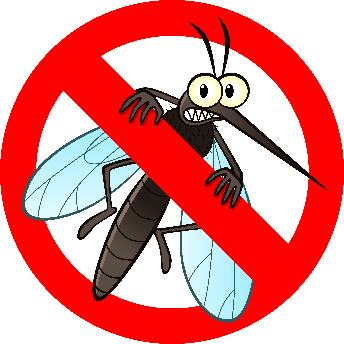Summer time is a time to enjoy the outdoors. However, when one has allergies that can be difficult, at times. Many helpful blogs have been posted to help in this regard.
Besides allergies, there’s another pesky problem which can spoil our summertime, outdoor, fun – mosquitoes! In addition to transmitting diseases such as Zika, West Nile, Malaria, and Dengue, mosquitoes more commonly cause itchy, annoying welts. When feeding, mosquitoes inject salivary proteins into skin. These proteins can elicit an immune reaction which leads to a delayed inflammatory response causing an immediate large local swelling. Many mosquito sensitive individuals have delayed swelling which appear after four to six hours and may persist for several days. Fortunately, these proteins rarely cause severe allergic reactions like bee stings can. Because histamine is an important mediator in these reactions, anti-histamines taken before the bite can help prevent some reactions.
Are you a magnet for mosquitoes?
Understanding what lures the insidious insects can be useful in avoiding them. The two most compelling factors of mosquito attraction have to do with sight and smell.
1. Apparel
Mosquitoes have great eyesight and use their eyes to target victims, especially later in the afternoon. Their first mode of search for humans is through vision. Wearing dark colors (navy, black) and red make you easier to spot.
2. Blood type
Adult mosquitoes survive on nectar for nourishment, but females rely on the protein in our blood for the production of eggs. So, it’s little surprise that some blood types may be more desirable than others. Research has found, in fact, that people with Type O blood are found to be twice as attractive to mosquitoes than those with Type A blood; Type B people were in the middle. In addition, 85 percent of people produce a secretion that signals what blood type they are; mosquitoes are drawn to those 85 percent more than the non-secretors.
3. Gas

Mosquitoes can sense carbon dioxide up to 160 feet away; so the more one exhales, the more attractive they become. Also, since human beings exhale carbon dioxide through the nose and mouth, mosquitoes are attracted to our heads, which explains the whole “mosquitoes buzzing about the ears all night” misery.
4. Heat and sweat
Mosquitoes apparently have a nose for other scents too. They can sniff down victims through the lactic acid, uric acid, ammonia and other compounds emitted in sweat. They also like people who run warmer; a hot, sweaty, human must seem quite delicious to them – couch potatoes, rejoice. Strenuous exercise increases the buildup of lactic acid and heat in your body while genetic factors influence the amount of uric acid and other substances naturally emitted by each person, making some people more easily found by mosquitoes than others.
5. Skin odors
The types and number of bacteria on one’s skin can play a role in bringing on the mosquitoes as well. Our skin has lots of germs which can cause a distinct fragrance. The bacteria factor could also explain why some mosquitoes are drawn to ankles and feet, an especially ripe source of bacteria.
6. Pregnancy
Women who are pregnant are probably those least wanting to attract mosquitoes, but alas, some species are evidently more attracted more to pregnant women. Researchers believe it is due to an increase in carbon dioxide that women in late pregnancy exhale. They also discovered that the abdomens of pregnant women were 1.26°F hotter, adding to the mosquitoes-like-warm-bodies component.
7. Beer
Who knew mosquitoes had a taste for beer? The little lushes. Researchers found that significantly more mosquitoes landed on study participants after drinking a 12-ounce beer than before.
So, what’s a person to do?
Try the following:
1. Cetirizine (Zyrtec) 5-10 mg on days when outdoors for long periods of time.
2. Apply insect repellent on all exposed areas.
3. Arms and legs should be covered with long sleeves/pants if possible.
4. If an insect bite occurs apply ice to the bite as soon as possible.
5. Apply Adolf’s meat tenderizer on the bite. The proteases in the meat tenderizer can help break down insect proteins to minimize reactions.
Also, it goes without saying, prevention of bites is our best line of defense!

Category: Uncategorized



